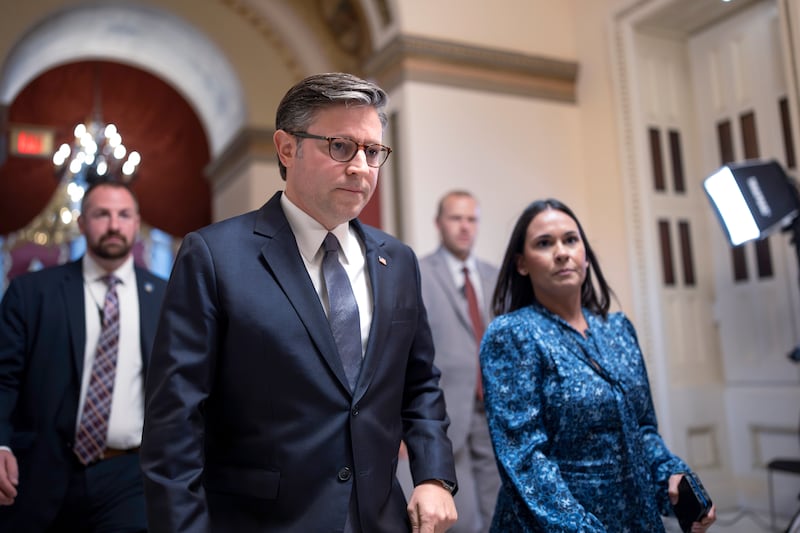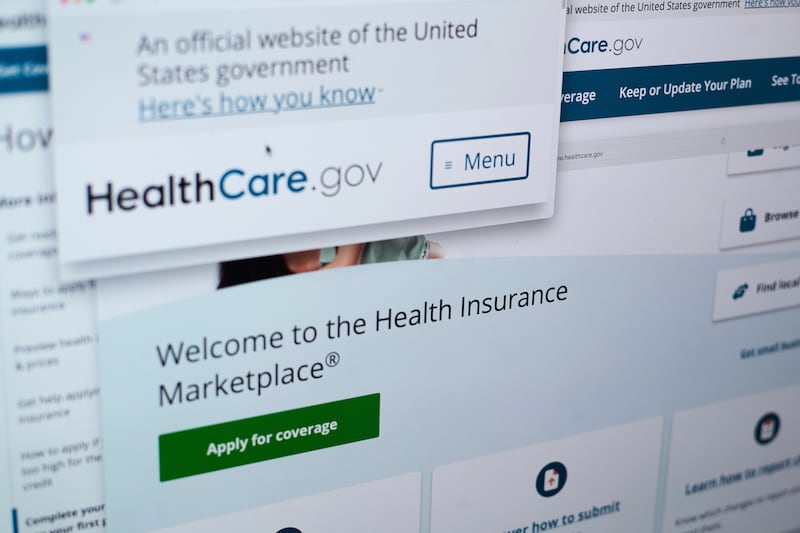WASHINGTON — Republicans won’t include extensions of enhanced Affordable Care Act subsidies in the upcoming government spending bill, setting up a clash with Democrats that could result in a shutdown later this month.
Top GOP leaders won’t include language to extend the premium tax credits in any short-term spending deal, House Speaker Mike Johnson, R-La., told reporters on Monday, instead suggesting they would punt that issue further down the road.
“That’s a December policy issue, not a September funding issue,” Johnson said.

The tax subsidies were initially passed in the Affordable Care Care Act under then-President Barack Obama, and they were later extended by former President Joe Biden until the end of 2025. Now with just months until the deadline, after which families could see their premium costs skyrocket, Democrats are using the opportunity as an attempt to notch a political win in an otherwise Republican-led bill.
The government is scheduled to shut down at midnight on Oct. 1, after which funding will lapse for a slew of federal agencies. Top appropriators are still negotiating how to avoid the spending freeze, although it’s likely they will take a two-pronged approach to pass three of the 12 annual appropriations bills in one package known as a “minibus” and then temporarily extend the deadline for the remaining nine bills.
GOP leaders have indicated the CR will be mostly “clean,” meaning it extends current government funding levels with no other policies or spending attached. But Democrats are demanding that the measure either includes extensions for those Obamacare subsidies or increased spending for Medicaid after the program experienced cuts in Trump’s massive tax bill.
Otherwise, they say, they won’t provide necessary support to avert a government shutdown.
Any spending deal will be subject to the 60-vote filibuster requirement in the Senate, meaning at least seven Democrats will need to side with Republicans to advance the measure.
Senate Minority Leader Chuck Schumer, D-N.Y., and House Minority Leader Hakeem Jeffries, D-N.Y., met behind closed doors last week, emerging with a “unified front” on the issue.
“We are together in defense of the health care of the American people,” Jeffries said.

That’s a shift from Democrats’ strategy in March when Congress passed its last government spending extension, during which all House Democrats voted against the measure but Schumer led a handful of senators in crossing party lines to avoid a shutdown.
Schumer was largely criticized by members of his party, and young voters accused the top Senate Democrat of not doing enough to thwart Trump’s agenda in Congress. That’s likely fueling their approach this time around, as Democrats so far vow not to bend the knee if key concessions are not made.
The House could vote on the stopgap funding bill as early as this week, although details of the measure have not yet been released.


